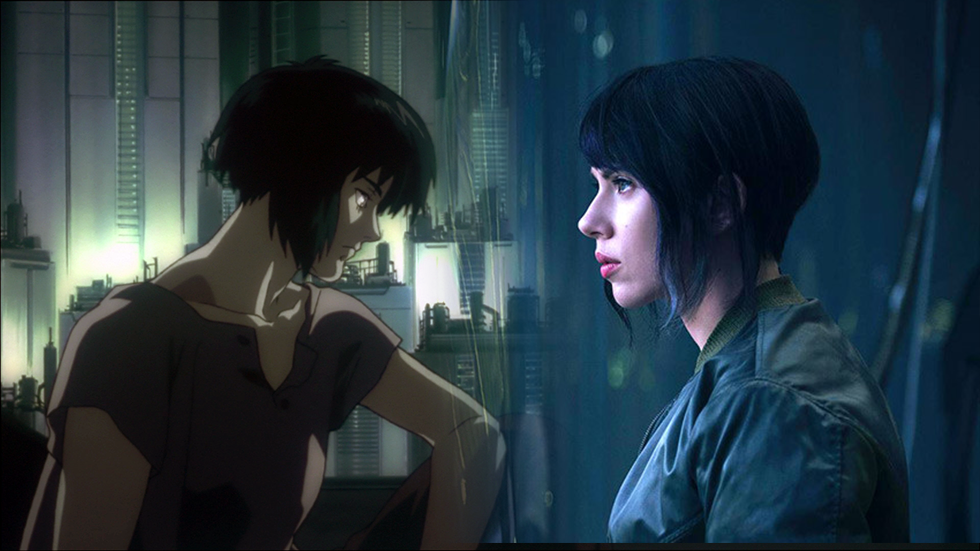
This is a weird connection I made a long time ago, but never really shared anywhere.
A while ago I was watching videos and reading books from the researcher Dan Ariely. Ariely does a lot of stuff, but one of the ways he got started researching was through the study of pain. Having suffered terrible burns all over his body, Ariely became fascinated with how pain is treated in modern medicine and went on to conduct experiments with the view of finding better ways to administer painful treatments while causing the least amount of distress to patients.
He discovered several things; for example, it's better to start with the worst pain and slowly ease off, rather than building up. Also a small pain prolonged over a longer time is more manageable than an intense, short pain.
I don't remember which video or book it was where he talked about his pain research, but one thing he said really stood out to me.
Humans have a much greater capacity for pain than happiness. It's easy to put someone in a lab and test how they respond to pain. It's much harder to put someone in a lab and make them really happy. Also, our enjoyment of happiness wears off with time. Like, if I moved to a tropical island paradise, I would be very happy the first week, but after a while it would become boring to me.
And this is all manifestly true. We don't process pain and pleasure/happiness in the same way. There's even whole movies (coughInsideoutcoughcough) dedicated to the premise that chasing after happiness is doomed to fail. And from a scientific view, this makes sense. We should want to be better off, but we really need avoid stuff that's going to kill us.
But what about from a religious perspective? Especially, what happens when you bring eternity into the balance?
Growing up I learned that God's infinite grace in letting some people into heaven more than balanced out the fact that most people (for the gate is wide and many will go into it) will go to hell. It was two sides of the same coin. There is no conflict between mercy and justice. One blooms out of the other. No hell without heaven, no heaven without hell.
But even while we nod our heads in agreement to what more wise, more reasonable, more orthodox mouths are saying, something inside us is screaming.
One of Dostoevsky's characters had a thought project where a wicked man passed on and was cast out into a barren wasteland. (No fire, just boring nothingness.) And at first he thought it would be just too gauche to wander into heaven after all that. So he waited for eons. Then he thought "Why not?" and began walking. After eons more, he finally got to heaven and was let in. He said that one millisecond was worth all those years of waiting.
I want to tell another story. A person lived life of complete devotion and self-denial. They believed in Jesus and loved him with all their heart, so they never complained. After they died they experienced eternal bliss for a millennium. And all this time, both on earth and in heaven, they thought it would be unbearably gauche to take so much as a peek into the darkness that was hell. But they became curious and decided, "Why not?" They looked for one millisecond before they shut their eyes, and that one millisecond was enough to make them curse God and cry out that in all of eternity there was no justice.
Because we all know how human nature works. Heaven, with all it's splendor and golden streets, and infinite praises, would kind of get boring after a while. Maybe not at first. But when that little bird who rubs its beak on Mt. Everest every thousand years wears the mountain down to the ground--yeah, probably.
Given the same amount of time, would a single sinner burning in hell have stopped screaming?
I can see people whipping out their Theodicies and muttering things about potters and clay, and higher ways than ours, but I simply have no fucks. Sure, you can invent some arguments that make a literal heaven and hell seem oh-so-reasonable (as long as you think you're going to heaven). But you might as well start with the assertion that "2+2 = 5." There's something in human intuition that goes, "Nah. Doesn't work that way."
And that's why I can't buy it. The joy of heaven will never be enough to cancel out the horror of hell, even if only the single most wicked human being in creation were damned. The God who allowed hell knows he doesn't even need heaven. "Not-Hell" is more than sufficient for his reign of terror. Heaven, he allows for, the way a serial killer lets a victim escape every once in a while.
I wouldn't begrudge the humans that do escape, or say they should damn themselves on principle. But not because that makes the damned into some form of terrorists who are going on a hunger strike until they get into heaven on their terms. Simply because, if hell is a possibility then we all need to be selfish and make whatever bargain we can to stay out of it.
Now, most people believe in a more "absence of emotional goodness" hell, or in the extermination of unworthy souls, or in a purgatory with some finite pain that everyone can work through given enough time. Or the people are tortured with the same crimes they themselves committed. If that's what you believe, then I'm not really writing this for you. I don't know if you're right, but you're certainly a lot more just than some versions of God.
As Dostoevsky might say, the kingdom of heaven deserves to fall if its foundations are built on the cries of even one pagan baby.








